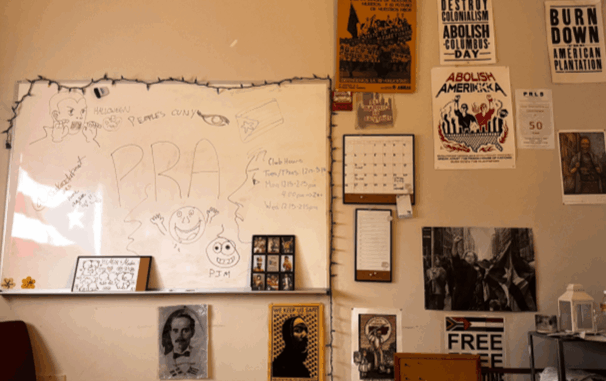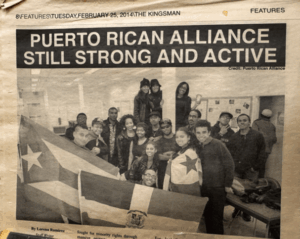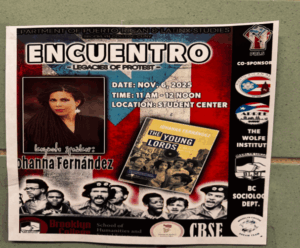
BY KAILA MACEIRA
As New York City’s mayoral election nears, leaders of Brooklyn College’s Puerto Rican Alliance (PRA) see local elections as more relevant to their concerns than national U.S. elections.
“I didn’t vote in the last presidential election because I couldn’t support a candidate who funded genocide,” said PRA vice president Miguel Figueroa, who is majoring in Puerto Rican and Latin Studies. Figueroa, a Chilean, rejects national politics not out of laziness, but because of his understanding of its limitations. “PRA doesn’t endorse politicians because we don’t think colonial electoralism will free Puerto Rico or Palestine,” he said. “But in local elections, things like rent freezes, better housing, or free buses can change daily life for working-class communities.”
Figueroa connects the club and the neighborhood. “Puerto Ricans are being priced out of the city,” he said. “Voting is part of the solution, but organizing and showing up for our people, that’s what actually changes things.”
Inside PRA’s office, which is lined with posters reading “Abolish Colonialism” and “Free Palestine,” students debate how political systems shape their lives. Nationally, Hispanic voters are trending rightward, but Puerto Ricans are less likely than other Latinos to vote at all.
Puerto Ricans who live on the island are disenfranchised: Puerto Rico is a U.S territory, and Puerto Ricans cannot vote in U.S. presidential elections. They lack electoral votes and have no representation in Congress. Many Puerto Ricans living in the diaspora reject voting in US elections as a form of identity politics.
Angelina Venetian, 21, a classics and linguistics double major and PRA president, noted the tension between engaging with and questioning local politics: “When it comes to housing and affordability, local politics affect the Puerto Rican community a lot,” she said. “We’re not the most economically wealthy group in New York, and gentrification keeps pushing people out.”
Venetian said her identity affects her political skepticism: “It’s like, am I gonna choose this imperialist or that imperialist?”
However, she continues to cast votes: “I mean, I’ve voted in every election so far,” Venetian said. “It’s one small thing I can do, but I know it’s not our biggest form of political power.”
Both Figueroa and Venetian noted that Puerto Rican voters are not a politically monolithic group. “A lot of people assume we’re all progressive,” Venetian said. “But many Puerto Ricans are conservative, especially older generations. Some supported Trump because they thought he’d help the economy; it’s more common than people think.”
In the 2024 United States presidential election, Hispanic turnout increased to 58%, a five percent rise over 2020, according to the Pew Research Center. About 9% of the total US Hispanic population is Puerto Rican. They have a lower turnout in local elections than Latinos identified as Mexicans, Cubans, Dominicans, and Colombians do. According to Pew, this was also true during the 2021 New York City mayoral election, with only 25% of registered Puerto Rican voters casting ballots. However, overall turnout was also at a record low of 21%.
While turnout in elections may lag, activism on campus is intense, and PRA has a long history. Puerto Rican and Black students founded PRA in 1968 and protested for equal representation and resources at Brooklyn College. The PRA sought a Department of Puerto Rican Studies, representation for students in academic governance, and accountability from faculty. Along with the Young Lords and the Black Panther Party campus groups, the PRA sought to create cultural and political space. Its mission still focuses on education, organizing, and engagement.

PRA’s next event, its annual Encuentro, will be “Legacies of Protest,” continuing the theme of activism and identity. The group is collaborating with the Department of Puerto Rican and Latinx Studies and will welcome historian Johanna Fernández, author of The Young Lords: A Radical History, as a co-host.

